When I taught Kindergarten, my farm unit was a staple each fall! We visited a farm and pumpkin patch every October, so after our friendship unit, we started learning about farms right away to prepare for the field trip.
For many of my students, our field trip to the farm was their first experience visiting one. They could name a few farm animals, but beyond that, they really didn’t understand what a farm was for.
When I began designing the unit, I knew I wanted to go beyond just teaching about farm animals. I wanted my kids to understand how very important farms are to their daily lives. I also wanted my students to use their knowledge about food to make healthy choices.
So I designed a unit that addressed all of these concepts: a farm-to-table unit that taught students about where food comes from, why farms are important, and how kids can make healthy food choices.
Read on to see photos and an outline of our unit activities, as well as the 3 essential questions we explored during our unit!
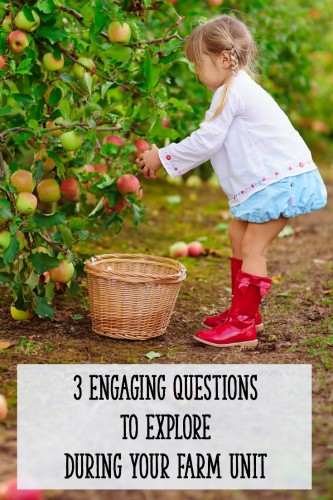
1. Where does food come from?
Food comes from the grocery store, of course! At least that’s what my kids always told me at the beginning of our unit. 🙂 Some of them knew that milk comes from a cow, but that was about it. During our farm unit, I worked to deepen my students’ understandings about where different foods come from.
Some of the topics we discussed included:
- Foods that come from plants vs. foods that come from animals
- How different fruits and vegetables grow
- Where eggs and dairy products come from
- How people process crops to make new foods (i.e. bread)
- How food gets from the farm to our tables (transportation)
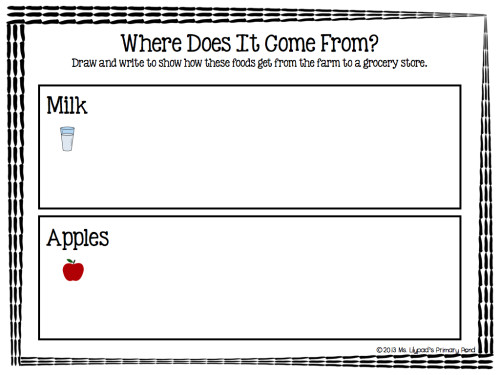
A little formative assessment I use to check and see if kids grasp the “farm to table” concept
Learning about where food comes from leads us to our second question…
2. How do farms work, and why are they important?
Another misconception my students had was that farms are places where animals live. They were so surprised to find out that some farms don’t even have animals! During this part of our unit, students learned about:
- The purpose of a farm
- Where farms are located (urban vs. rural – download the free Google Earth software to visually show students the difference between urban and rural landscapes, and they will be amazed!)
- What the role of a farmer is
- The names of different farm animals and crops
- The needs of different farm animals and crops (food, water, etc.)
- Tools farmers use (i.e. tractors)
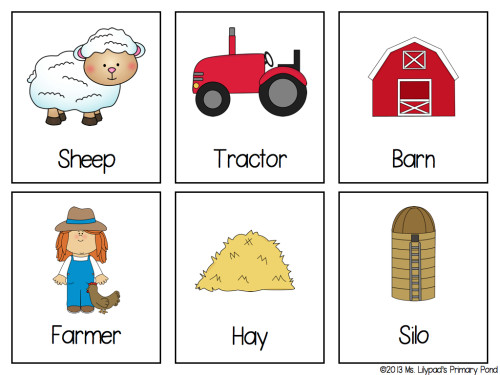
Vocabulary cards from the unit – students practice reading and making these words with magnetic letters
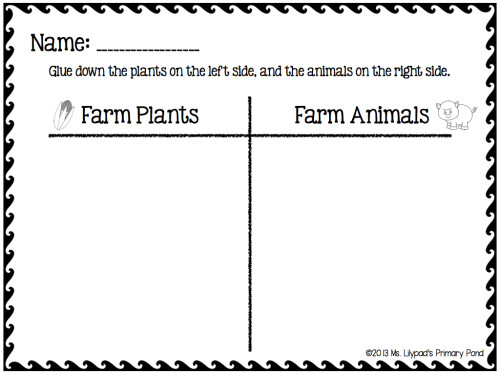
A farm plants vs. farm animals sorting activity
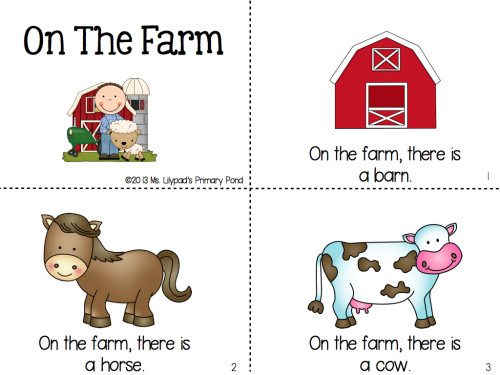
A page from one of the leveled readers we used during guided reading
After we had learned all about farms, then we explored our last question…
3. How can we make healthy food choices?
All of the units I create have actionable, real-life outcomes. My ultimate goal is for students to be able to apply their learning in a meaningful way.
For this unit, I wanted my students to take their knowledge about food and use it to make healthy choices. I also wanted them to be able to share that information with other children at our school.
During this final part of the unit, students learned about food groups and balancing food choices. The FDA MyPlate website has some great activities you can use when teaching about food groups and healthy eating. The photo below is a cut and paste activity from my unit that uses the FDA MyPlate concept for sorting foods.
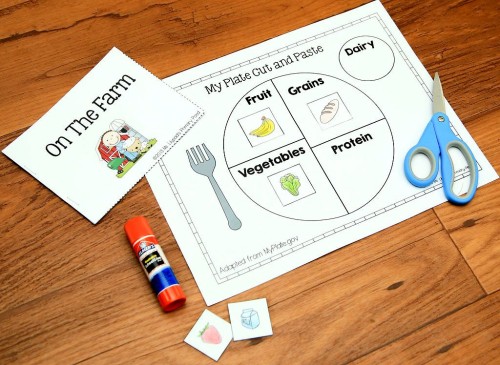
After learning about the food groups, students evaluated daily menus to determine if they were healthy or not, and they created their own healthy menus.
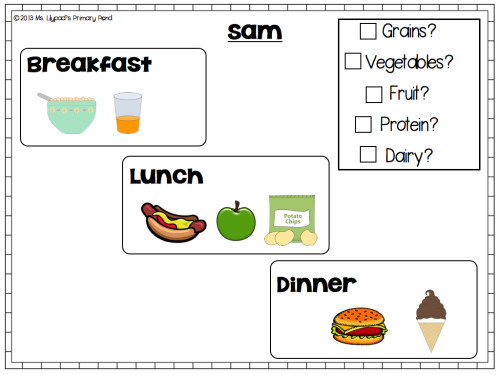
One of the daily menus my kids evaluated – the checklist in the corner helped them determine if all food groups were included
After learning all about healthy foods and how to make good choices, students took their new knowledge and shared it with others. They created posters with healthy eating tips, and we hung the posters around the school. During the morning announcements, our assistant principal talked about the posters so that other students in the school would take note of them. My kids were always so excited to hang up the posters!!
As you can imagine, learning about all these different topics took quite a while! I usually spent about 6-8 weeks on our farm unit. But all the time we spent was definitely worth it! My students’ vocabulary increased, as did their depth of knowledge about food and farms. Food and farm related topics also popped up frequently in the emergent books that they were reading, so this unit gave them the background knowledge they needed to be successful with the books.
If you’re interested in using the lessons, printables, and centers materials that I used, click on the image below to read more about my farm unit.
Happy teaching!
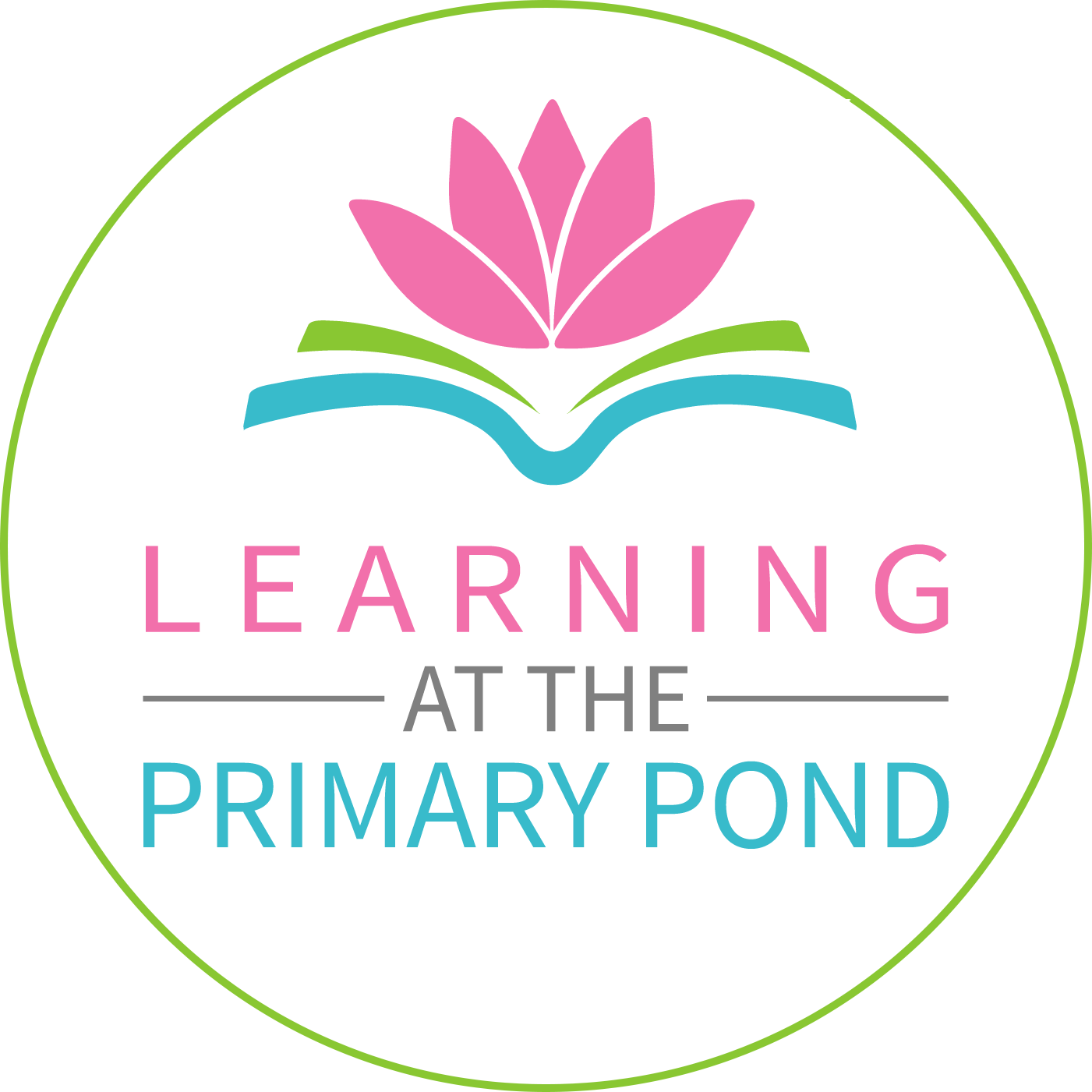
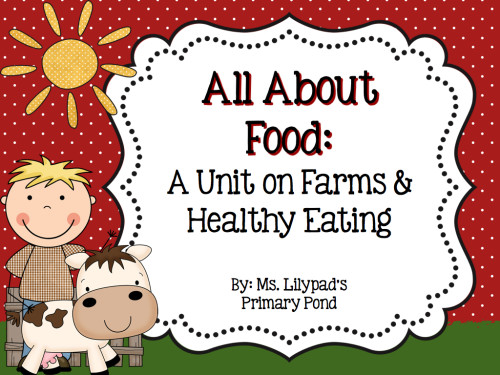
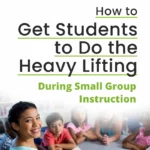

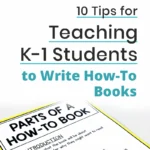
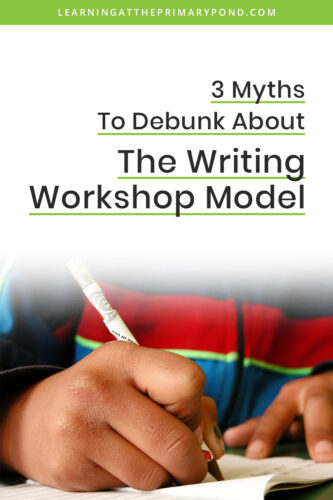
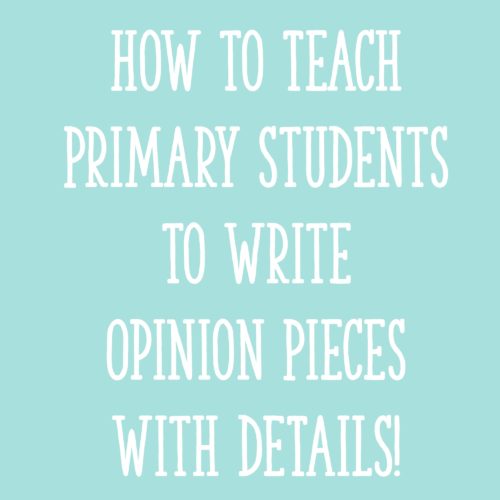
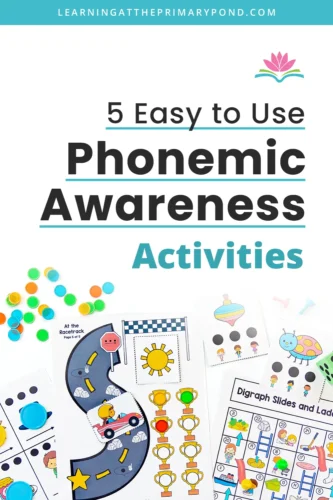

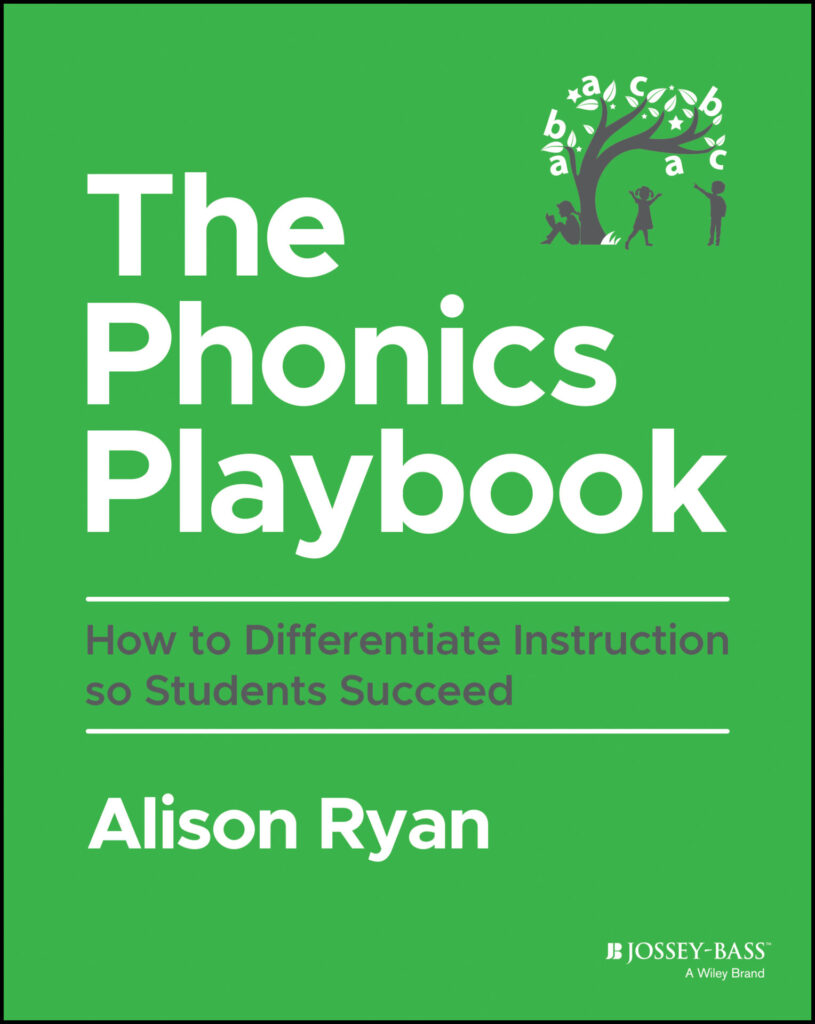
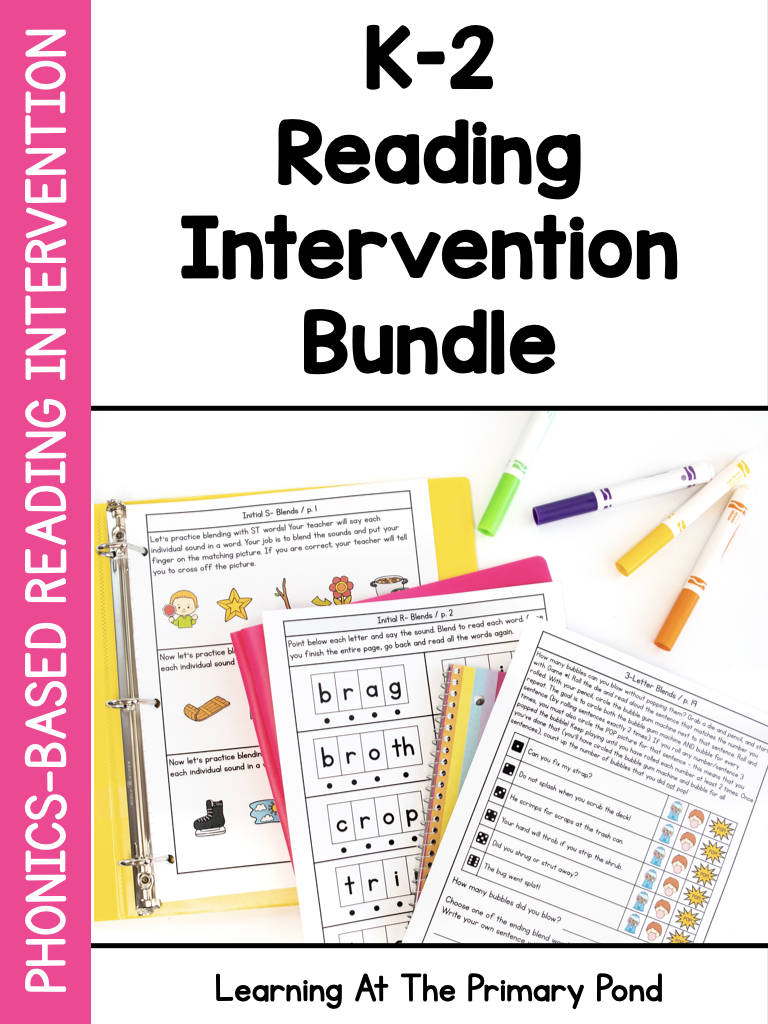
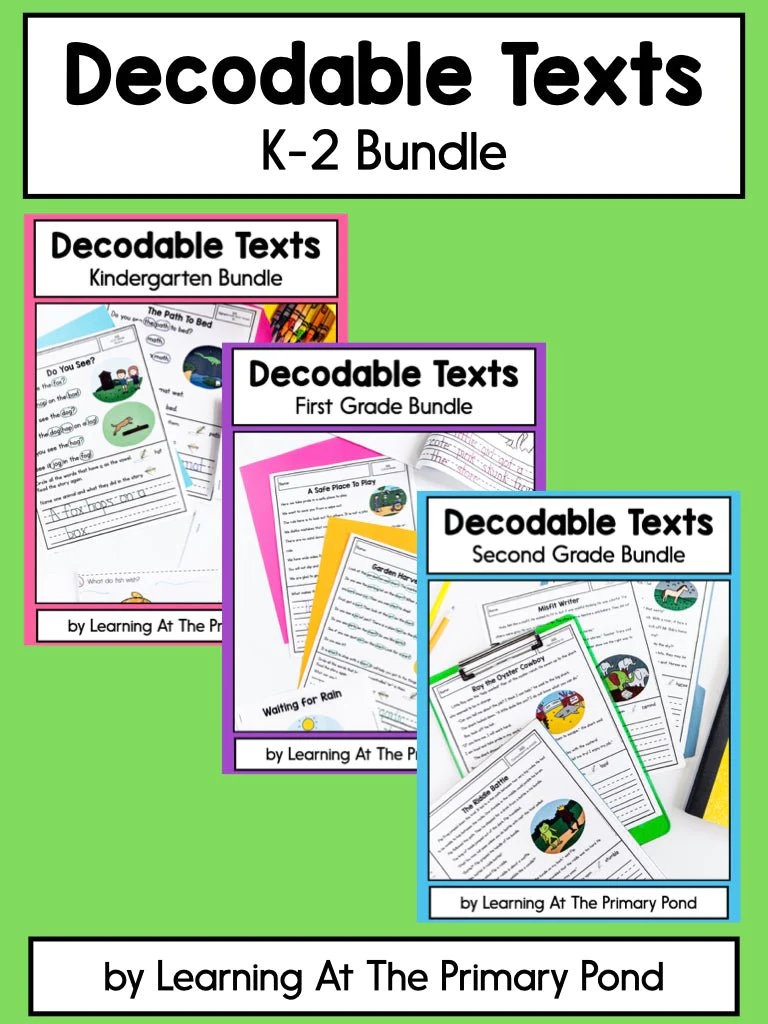

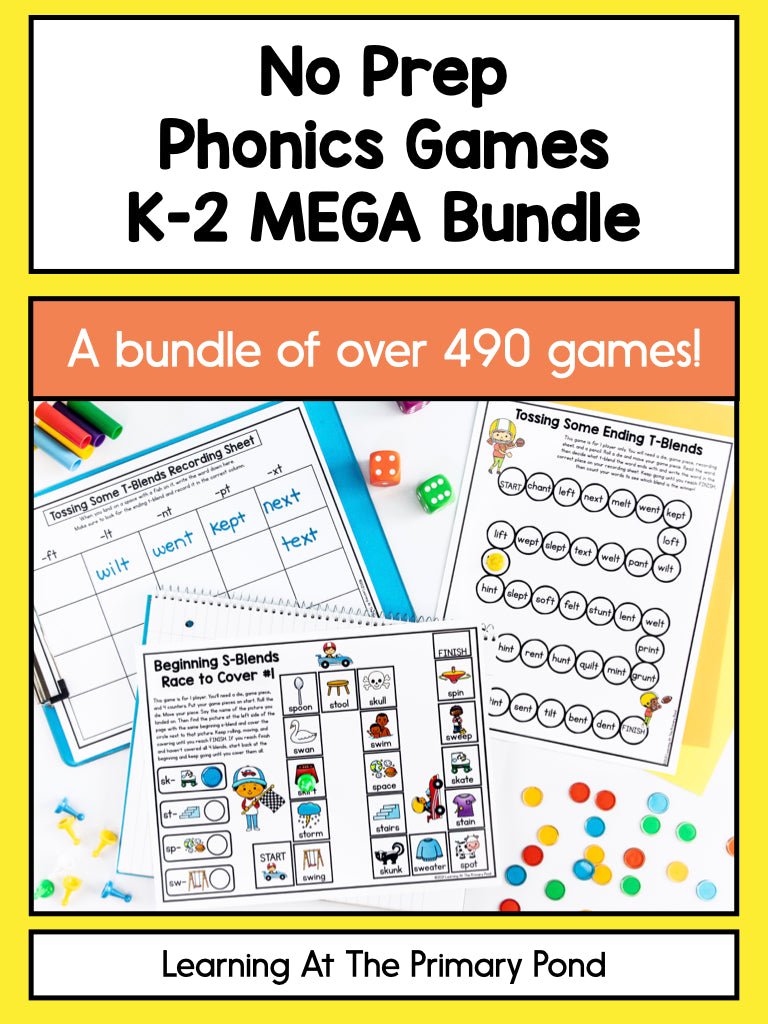
Love this. My youngest son is a huge farm lover so this would really appeal to him. H 🙂
That’s awesome, Harriet! Fall is such a perfect time for a farm visit, too. 🙂
This class discussion has been really helpful. Thanks